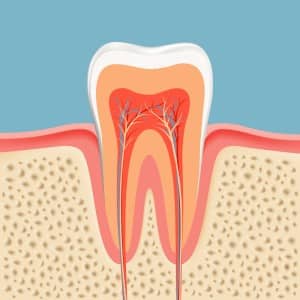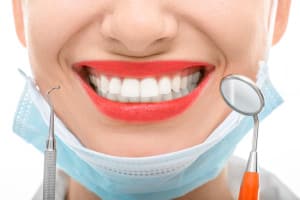 It can be shocking to learn that beyond the fact that you need a toothbrush, it’s important that you choose a good toothbrush. What, exactly, you may wonder, makes a good toothbrush? Well, there are a variety of items you need to consider when purchasing your brush for effective dental hygiene. Rather than cause you any additional confusion, we would like to make your experience extremely easy by providing you with a checklist. Mark off each item as you go along for success.
It can be shocking to learn that beyond the fact that you need a toothbrush, it’s important that you choose a good toothbrush. What, exactly, you may wonder, makes a good toothbrush? Well, there are a variety of items you need to consider when purchasing your brush for effective dental hygiene. Rather than cause you any additional confusion, we would like to make your experience extremely easy by providing you with a checklist. Mark off each item as you go along for success.
3 Tips For Healthy Lips
 Do you focus on your oral health care as much as possible, doing your best to ensure your gums are healthy, your teeth are healthy, and even your jaw joints are in good shape? If so, your lip health may be falling by the wayside. As a result, you may wonder what you should do to spend a bit more time concentrating on the health of your lips. In fact, you may not know where to begin! Allow us to offer you some introductory guidance, so you know your efforts are truly comprehensive in nature.
Do you focus on your oral health care as much as possible, doing your best to ensure your gums are healthy, your teeth are healthy, and even your jaw joints are in good shape? If so, your lip health may be falling by the wayside. As a result, you may wonder what you should do to spend a bit more time concentrating on the health of your lips. In fact, you may not know where to begin! Allow us to offer you some introductory guidance, so you know your efforts are truly comprehensive in nature.
Tooth Loss Decisions And Results
 You might think that when you’re dealing with tooth loss, you have all the time in the world to make up your mind about tooth replacement options. You might even convince yourself that missing teeth is purely an esthetic issue that has nothing to do with your oral health, so the idea of replacing your teeth makes you feel guilty. Here’s what you need to know: It’s actually extremely important that you replace those teeth. Allow us to explain more about the decisions you make and the results you can expect.
You might think that when you’re dealing with tooth loss, you have all the time in the world to make up your mind about tooth replacement options. You might even convince yourself that missing teeth is purely an esthetic issue that has nothing to do with your oral health, so the idea of replacing your teeth makes you feel guilty. Here’s what you need to know: It’s actually extremely important that you replace those teeth. Allow us to explain more about the decisions you make and the results you can expect.
(more…)
3 Options For Changing Tooth Size
 When you speak with friends about your smile or sit down to browse the Internet, what types of issues are you thinking about? Are you upset that your teeth are too long, too short, too wide, too skinny, or that you simply don’t like something about their shape? If so, you may feel worried that while there’s a lot you can do to improve your grin, maybe there isn’t much you can change when it comes to dimensions. Good news! You can change these concerns with the help of cosmetic dentistry. Let’s explore a few frequently utilized treatments.
When you speak with friends about your smile or sit down to browse the Internet, what types of issues are you thinking about? Are you upset that your teeth are too long, too short, too wide, too skinny, or that you simply don’t like something about their shape? If so, you may feel worried that while there’s a lot you can do to improve your grin, maybe there isn’t much you can change when it comes to dimensions. Good news! You can change these concerns with the help of cosmetic dentistry. Let’s explore a few frequently utilized treatments.
OTC Whitening Q&A: What You Should Know
 Have you made the decision that your darkened or yellowed smile has got to go – and that it’s time to replace it with a vivid, sparkling grin? If so, you are probably already aware that you can achieve beautiful results with teeth whitening. However, the type of whitening you choose is actually a very important factor in your smile-improving journey. Choosing professional treatment with us? It’s an effective plan. Relying on OTC (over-the-counter) whitening? Not so great. Allow us to explain why with a Q&A session.
Have you made the decision that your darkened or yellowed smile has got to go – and that it’s time to replace it with a vivid, sparkling grin? If so, you are probably already aware that you can achieve beautiful results with teeth whitening. However, the type of whitening you choose is actually a very important factor in your smile-improving journey. Choosing professional treatment with us? It’s an effective plan. Relying on OTC (over-the-counter) whitening? Not so great. Allow us to explain why with a Q&A session.
Cutting Sugar Out Of Your Diet
 Cutting sugar out of your diet is not only good for your dental health, it is good for your overall health. Too much sugar not only contributes to tooth decay and periodontal disease, it also contributes to weight gain, diabetes, and heart disease. Although you can make the distinction between natural sugars and added sugar, most every food besides fruits have sugar added, meaning most people’s diets are high in sugar. For women, the American Heart Association (AHA) recommends they get no more than 24 grams of added sugar per day which is equal to about six teaspoons, or 100 calories, just less than the amount of sugar in one can of soda. However, studies show that the average American woman eats about three times that amount, daily.
Cutting sugar out of your diet is not only good for your dental health, it is good for your overall health. Too much sugar not only contributes to tooth decay and periodontal disease, it also contributes to weight gain, diabetes, and heart disease. Although you can make the distinction between natural sugars and added sugar, most every food besides fruits have sugar added, meaning most people’s diets are high in sugar. For women, the American Heart Association (AHA) recommends they get no more than 24 grams of added sugar per day which is equal to about six teaspoons, or 100 calories, just less than the amount of sugar in one can of soda. However, studies show that the average American woman eats about three times that amount, daily.
How Important Is Your Tooth Root?
 Remember the saying, “Out of sight, out of mind?” Well, that seems the way it is for our tooth roots, wouldn’t you say? How many of us actually think about the roots of our teeth? Most people focus on the crowns of their teeth. The part of the tooth structure that people see. The part that they floss and brush, and try to keep white and shiny. The crowns of your teeth are very important because you need them to chew your food, but have you ever thought about the importance of your roots?
Remember the saying, “Out of sight, out of mind?” Well, that seems the way it is for our tooth roots, wouldn’t you say? How many of us actually think about the roots of our teeth? Most people focus on the crowns of their teeth. The part of the tooth structure that people see. The part that they floss and brush, and try to keep white and shiny. The crowns of your teeth are very important because you need them to chew your food, but have you ever thought about the importance of your roots?
(more…)
What To Expect From A Dental Implant
 Missing tooth got you down? Perhaps you are scheduled for a planned extraction, to remove an unhealthy or damaged tooth. Dental implants can make a positive transformation in your smile. You don’t have to know a lot about dental implants to be able to benefit from them. You care for an implants using the same brushing and flossing techniques for your natural teeth. Two more things to expect from an implant: natural looks and long life (with proper care.) (more…)
Missing tooth got you down? Perhaps you are scheduled for a planned extraction, to remove an unhealthy or damaged tooth. Dental implants can make a positive transformation in your smile. You don’t have to know a lot about dental implants to be able to benefit from them. You care for an implants using the same brushing and flossing techniques for your natural teeth. Two more things to expect from an implant: natural looks and long life (with proper care.) (more…)
Ready For Veneers? Hint: Care Is Simple
 Do you feel like you’re ready to take the plunge and say, “yes!” to choosing porcelain veneers? If so, you will soon find yourself making an exciting journey toward a truly remarkable smile transformation. So, why aren’t you jumping at the opportunity to make this change? If you are like many of our patients, you are worried that even though your smile will look lovely, perhaps caring for it will become a huge challenge. Good news – it won’t. Veneers require simple care. Allow us to enlighten you with some details.
Do you feel like you’re ready to take the plunge and say, “yes!” to choosing porcelain veneers? If so, you will soon find yourself making an exciting journey toward a truly remarkable smile transformation. So, why aren’t you jumping at the opportunity to make this change? If you are like many of our patients, you are worried that even though your smile will look lovely, perhaps caring for it will become a huge challenge. Good news – it won’t. Veneers require simple care. Allow us to enlighten you with some details.
How Your Dentist Takes Care of Your Smile
 Professional dental care is an essential component to good oral health; but for better or worse, you exert the greatest influence on your smile’s health. Through proper hygiene education and a wealth of professional treatment options, your dentist is vital to helping you maintain your good oral health, whether that involves preventing issues or restoring your teeth, gums, or more. Today, we explain some of the more important tenets of maintaining your smile, and why visiting your dentist should be second nature. (more…)
Professional dental care is an essential component to good oral health; but for better or worse, you exert the greatest influence on your smile’s health. Through proper hygiene education and a wealth of professional treatment options, your dentist is vital to helping you maintain your good oral health, whether that involves preventing issues or restoring your teeth, gums, or more. Today, we explain some of the more important tenets of maintaining your smile, and why visiting your dentist should be second nature. (more…)







